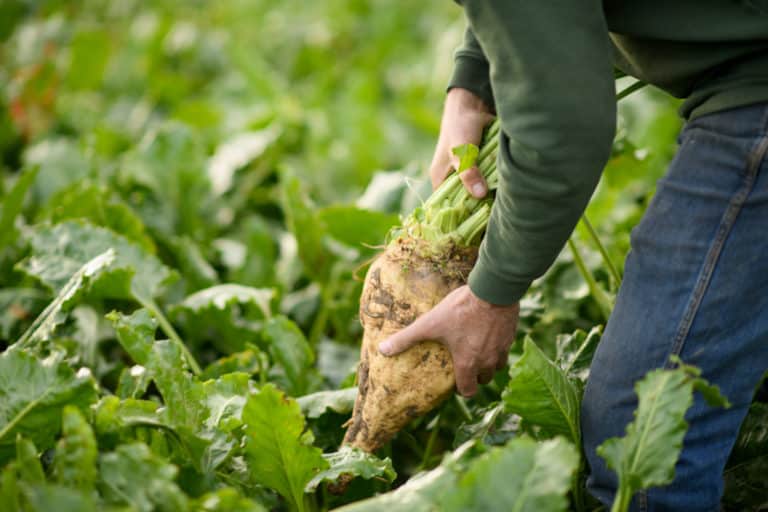Beet tails
All parts of the beet collected during the washing process, including the beet tails, are added to large sugar beet fermentation tanks near the factories. ‘We use it to make biogas,’ says Bertram.
Largest producer of green gas
‘Most of this green gas goes to the natural gas grid for use by Dutch households,’ explains Bertram. ‘We use about twenty percent for our beet campaign, when extracting sugar from the beets in autumn. We’re one of the largest green gas producers in the Netherlands.’
First in Europe
Cosun aims to reduce its CO2 output by 35 percent in 2030. In 2020, we reduced CO2 emissions in our sugar factories by forty percent and consumed fifty percent less energy per tonne compared to 1990. ‘Cosun saves a tremendous amount of energy by carefully using the heat produced during the campaign at different temperature levels. New technologies such as thermal vapour recompression are also used. Many European sugar factories reuse heat, but not nearly as efficiently as us. We are a frontrunner in this regard,’ says Bertram.
Energy experts
‘Cosun is well on its way to becoming climate-neutral in the future, but it’s important for our companies to take the necessary steps as well. We are learning a lot from each other and seeing if more solutions can be applied in more places, like the Cosun Solar Park. Our next step is to look into heat pump technology, which could save a lot on gas consumption. We have yet to apply this technology in our sugar production process. Fortunately, Cosun has an innovation centre where energy experts work full-time on climate projects and can lend a helping hand.’


